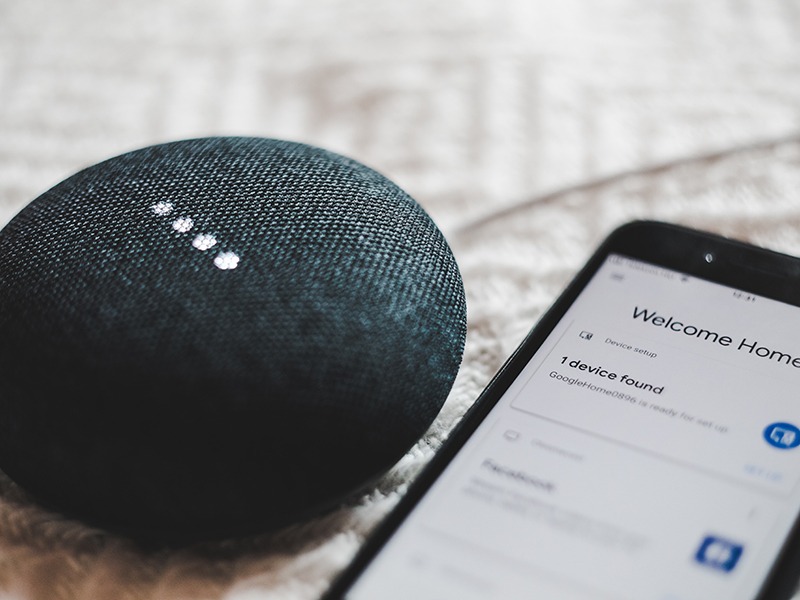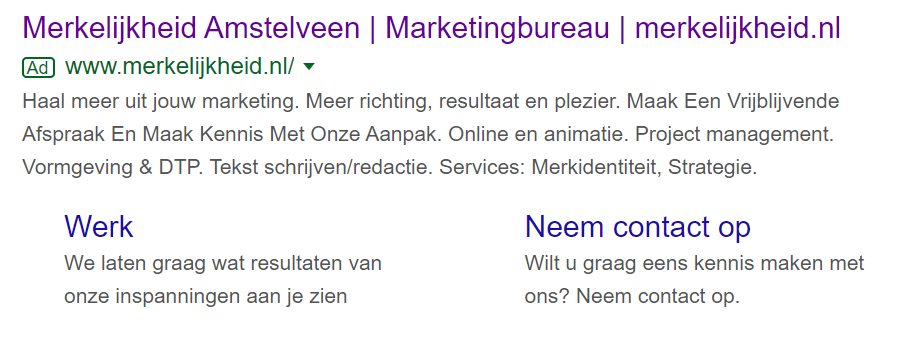*Online Marketing
Online marketing starts with Google keyword research and analysis.

Which keywords does your client use? Knowing what your customer is searching for is essential in setting up a targeted and effective Online Marketing campaign. We explain how a Google keyword research works and how it helps in building your online marketing campaigns. We focus on Search Engine Advertising (SEA) and Search Engine Optimization (SEO) and how these two disciplines come together.
Keyword research and online marketing
Online marketing covers almost the entire customer journey or sales funnel. Regardless of the model you use – such as the well-known AIDA model -, online marketing touches every phase. How you use online marketing is determined by the phase you are focusing on. Do you want to generate brand awareness or ensure that you are allowed to submit a quotation? This choice determines which resources and channels are most suitable for achieving your goals.

The basis of online marketing is search engine marketing, which works both in a paid manner, Search Engine Advertising (SEA), and an unpaid manner, Search Engine Optimization (SEO). In both cases, the so-called keywords, the words people use in their search queries, are essential. With a good understanding of the keywords related to your topic, you’ll know:
1. Which keywords your target audience uses.
2. What the search intent is (what the searcher wants to find).
3. In which phase of the buying process a keyword belongs.
4. What a keyword is worth (to you).
This allows an SEO or SEA campaign to be deployed effectively to achieve your goals.
Merkelijkheid collaborates closely with its clients in the field of online marketing. We collectively establish goals and KPIs and then deploy the right resources and channels. This ranges from increasing brand awareness or positioning relative to the competition to generating conversions. By conversions, we mean creating leads, sales, or points of contact. SEO or SEA often play a significant role in this, but for effective use, thorough keyword research is crucial.
Online Marketer Emma Stroosma on Google keyword research
Within Merkelijkheid, online marketer Emma Stroosma is the expert in keyword research. She has conducted keyword research for numerous clients. We asked her about the importance of thorough keyword research and how to do keyword research. She describes our approach in 6 steps:
1. Competition is the basis of keyword research.
Thorough keyword research always begins with an analysis of the online landscape where the client operates. We work together with the client to identify the most important competitors. Depending on the situation, these competitors can range from direct, local competitors to large international ones. Of course, this competition determines the region, language, and scope of the keyword research. We analyze the websites of both the competition and the client. Based on this analysis, we formulate a list of sometimes hundreds of keywords we can target.
“I’ve conducted keyword research for both small, more local clients and large international ones. Think of a local agency operating in debt counseling or a large international machine builder. We’re dealing with parties with a lot of competition to markets with only a few providers worldwide.”
2. Determining keyword volume.
Now, we have often hundreds of keywords at our disposal. We categorize them by volume (the number of searches per month), a step that already provides significant insights to the client. Often, a client thinks that ‘the market’ uses certain keywords, but there may be little actual search traffic on those terms. By ranking the keywords based on volume, we gain a good understanding of the total search traffic and get an initial impression of possible long-tail keywords.

Words with the most search traffic are often the most logical or direct ones. For example, when searching for an ‘online marketing agency,’ this keyword is relatively expensive (in terms of SEA) or more challenging to rank organically for (in terms of SEO) due to high competition. But what about the many more specific keywords with significantly lower search volume? Can’t we do anything with them?
3. Finding long-tail keywords.
The ‘sweet spot’ is often found with so-called long-tail keywords with slightly less traffic than the big general terms. Long-tail is a term derived from the characteristic hockey stick shape that shows there is a huge ‘tail’ in the demand for almost any topic. For every 20 searches on common terms like online marketing, there are 80 searches for more specific, in-depth search terms. And those could potentially be 40 different terms.
Often, it involves a combination of keywords. For online marketing services, this could be “online marketing support Amstelveen,” where the focus is on geographical aspects, or “online marketing for wedding photographers,” where a specific target audience is selected. The better you configure this, taking into account that there should still be search traffic on these terms, the better you align with your website visitor.
4. Keyword research: Search intent.
Understanding the search intent is crucial when selecting keywords. What is the user really looking for when typing a particular keyword? There are generally four types of search intent:
– Informational: The user is looking for information on a particular topic.
– Navigational: The user is looking for a specific website or page.
– Transactional: The user intends to make a purchase or perform a specific action.
– Commercial investigation: The user is in the research phase, comparing products or services before making a decision.
By aligning your selected keywords with the appropriate search intent, you can tailor your content and ads to better match what users are looking for, increasing the chances of conversion.

Zoekintentie wordt steeds belangrijker nu steeds meer mensen zoek met hun stem via Smart Speakers. Google geeft één resultaat op basis van de verwachte zoekintentie
Finding and selecting the right keywords are closely related to search intent. What is the user’s goal when they enter a specific term into Google? If they enter “online marketing agency,” do they want to become a customer or apply for a job? Or if someone searches for “Google keyword research,” do they need information or services? By categorizing keywords based on search intent, it’s possible to tailor the campaign even more to the client’s goals.
For instance, we can target a long-tail keyword like “online marketing support Amstelveen” while ignoring the more general “online marketing.” Your competition may pay the maximum bid for generic visitors, while we can focus on driving the relevant visitors to our landing page.
In one case, a client’s keyword research showed that the search intent for their primary keyword had nothing to do with their product. The company is in the field of machine building, but the search intent revolved around a medical procedure. These were expensive keywords that wouldn’t yield any results, so we intervened to avoid wasting money.
5. Costs of Search Engine Advertising (SEA).
Now that we have an extensive list of keywords, we can attract traffic by simply outbidding our competition. However, this can quickly become costly, and ultimately, only Google benefits. By focusing on keywords with the desired search intent and sufficient volume, we can use the budget most effectively.
An additional advantage is that we provide a clear estimate of the expected costs and results of your SEA campaign upfront. Of course, we continuously optimize the campaign, and in the weeks and months after launch, we often see average costs per click drop by as much as 20%.
6. Developing SEA advertisements or writing SEO content.
We now know exactly how and where we want to be found. Based on this, we develop content. In the case of SEA, this involves creating ads and landing pages, while in the case of SEO, it’s about writing SEO articles. In both cases, we write and build around the right keywords, with a focus on user search intent. This ensures maximum value from each visitor.

Going through these steps indeed results in a customized campaign for each client. Online marketing requires a flexible approach that takes into account the specific characteristics of the product, the market, and the client’s objectives. It’s crucial to have a deep understanding of the client’s field, whether it’s planetary gearboxes, fraud investigation, intercom systems, or other topics. This ensures we can develop an effective and tailored approach.
At Merkelijkheid, we use a variety of tools and platforms, both paid and unpaid, such as MOZ, Ubersuggest, and of course Google Ads and Google Analytics to achieve the best possible results for our clients. As a Google Certified Partner, we have expertise in Google Ads and other online marketing channels. We work closely with our clients to understand and realize their online marketing goals.